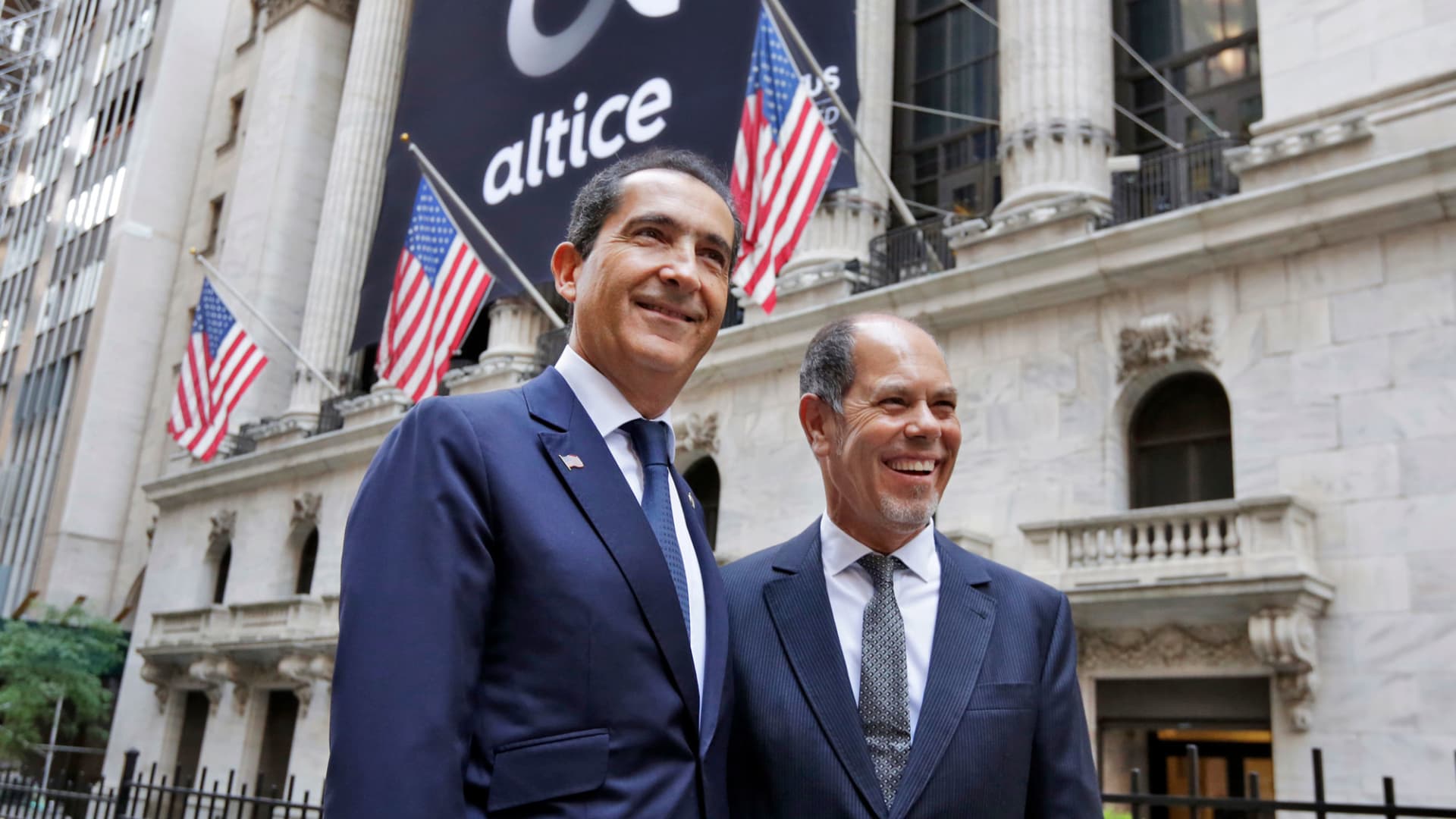
Altice founder Patrick Drahi, left, and co-founder Armando Pereira pose for photos outside the New York Stock Exchange, before the company’s IPO, Thursday, June 22, 2017.
Richard Drew | AP
The U.K. has launched probes into two major technology deals under its new National Security and Investment Act as it moves to protect its most prized technology assets from foreign takeovers.
In a note to shareholders Thursday, BT announced that U.K. Business Secretary Kwasi Kwarteng is “calling in” its deal with Altice, which is owned by telecoms magnate Patrick Drahi. BT said it plans to “fully cooperate” with the review.
The deal, revealed in December, would see the French multinational increase its shareholding of BT Group from 12.1% to 18%.
BT’s share price fell over 4% in early morning trading on the London Stock Exchange Thursday.
The National Security and Investment Act came into force on Jan 4. It gives the U.K. government the power to scrutinize and intervene in business deals that have the potential to threaten national security.
British icon
Tracing its origins back to the founding of the world’s first public telegraph company in 1846, BT is a British icon. The firm was previously state-owned, but was privatized by the end of the 20th century.
In recent years, it has struggled to convince investors of its vision to upgrade national network infrastructure and become a key player in next-generation 5G mobile internet. The company’s stock has plummeted 42% in the last five years.
Altice was founded by Drahi in 2001. A prolific dealmaker, he made a name for himself by snapping up a slew of cable and mobile companies in Europe and the U.S. The billionaire entrepreneur was born in Morocco but emigrated to France as a teenager. He has a net worth of $6.6 billion, according to Forbes.
Welsh chipmaker
The BT probe comes hot on the heels of another investigation.
Less than 24 hours earlier, Kwarteng announced on Twitter that he would review Nexperia’s takeover of Welsh semiconductor firm Newport Wafer Fab. Dutch firm Nexperia is 100% owned by Chinese electronics maker Wingtech.
Semiconductors are a key technology that underpins today’s global economy. Countries have come to realize their importance over the last couple years after a chip shortage wreaked havoc across a wide range of industries.
The government has 30 working days (extendable by up to a further 45 working days) to carry out the assessments.
In recent years, the U.K. has allowed some of its biggest technology companies to be acquired by overseas buyers, leading to “tech sovereignty” concerns.
Cambridge chip designer Arm was sold to Japanese tech giant SoftBank in 2016 for $32 billion, while London artificial intelligence lab DeepMind was acquired by Google in 2014 for around $600 million.




